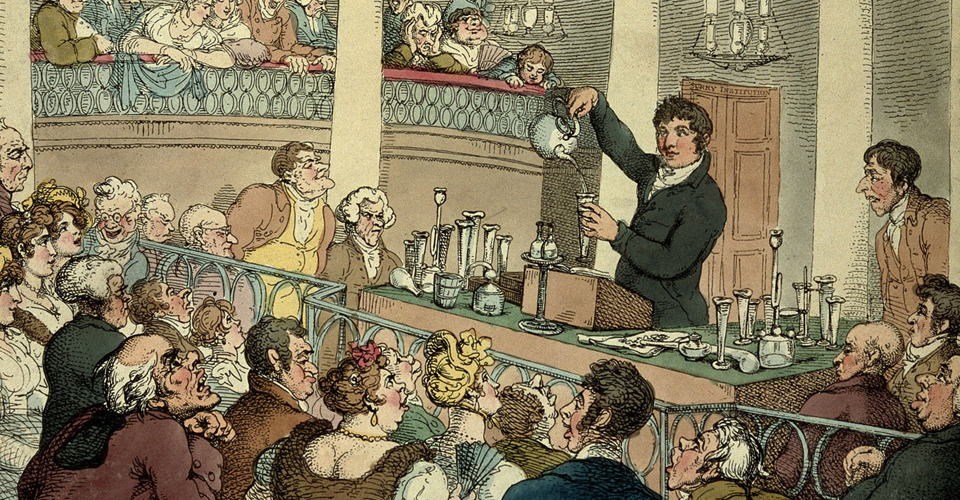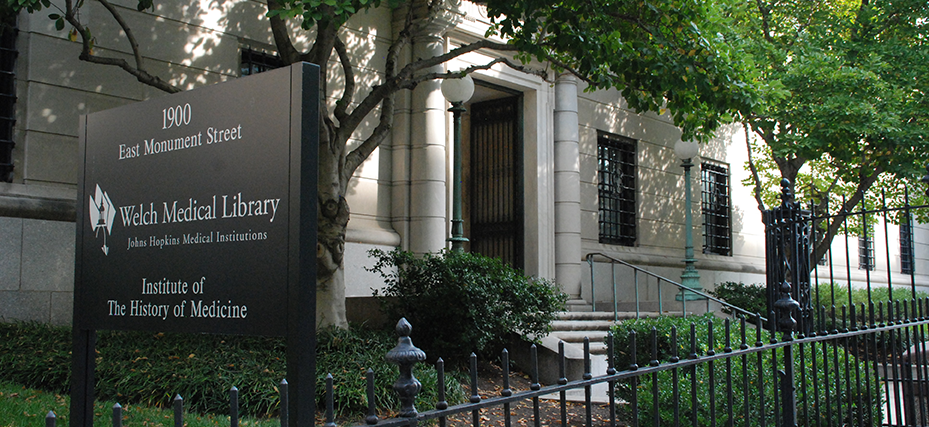How did the advent of bacteriology change the practices of public health officers in Victorian London? When and why did mothers choose man-midwives instead of women to deliver their babies? How did tuberculosis change the political economy of gold mining in South Africa? In what ways do modern genetics and new pharmaceuticals re-configure our sense of self? Questions such as these lie at the heart of our intellectual life.
We are committed to exploring the history of medicine in its broadest sense, both geographically and chronologically; we offer a range of graduate and undergraduate courses on topics such as the History of Chinese Medicine; Colonial Knowledge; Health and Healing in Early Modern England; Darwin, Freud, and Pasteur; and Disease Control in Historical Perspective.
The Institute of the History of Medicine is located in the William H. Welch Medical Library, named after the first Chair of the Department of the History of Medicine. In establishing the first Department of the History of Medicine in the English-speaking world, Welch sought to provide a humanistic component to medical education and public health.
Over the next decades, the Institute was home to leading historians of medicine including Ludwig Edelstein, Henry Sigerist, Fielding H. Garrison, Richard Shryock, and Owsei Temkin. For physicians and scholars in the United States and beyond, the history of medicine became synonymous with Hopkins.
Today the Institute is a center for teaching, research, and publication. Together with the Department of the History of Medicine, the Institute comprises the Historical Collection, a research library; and the editorial offices of the Bulletin of the History of Medicine, the official publication of the American Association for the History of Medicine.
The Department of the History of Medicine trains PhDs in the history of medicine, and teaches in the schools of medicine and public health. We offer courses for undergraduates and graduate students on the main arts and sciences campus of Johns Hopkins University.
The intellectual life of the Department is rich and exciting. Our colloquia showcase outside speakers and we are proud to offer the Noguchi, Gilbride, and Aliapoulios endowed lectures. Over the past decade, we have hosted conferences and workshops on topics as varied as the role of history in medical education; the history of Alzheimer’s Disease; a cultural history of the body in Chinese medicine; women, health and healing in early modern Europe; as well as those honoring Owsei Temkin and Harry M. Marks.

